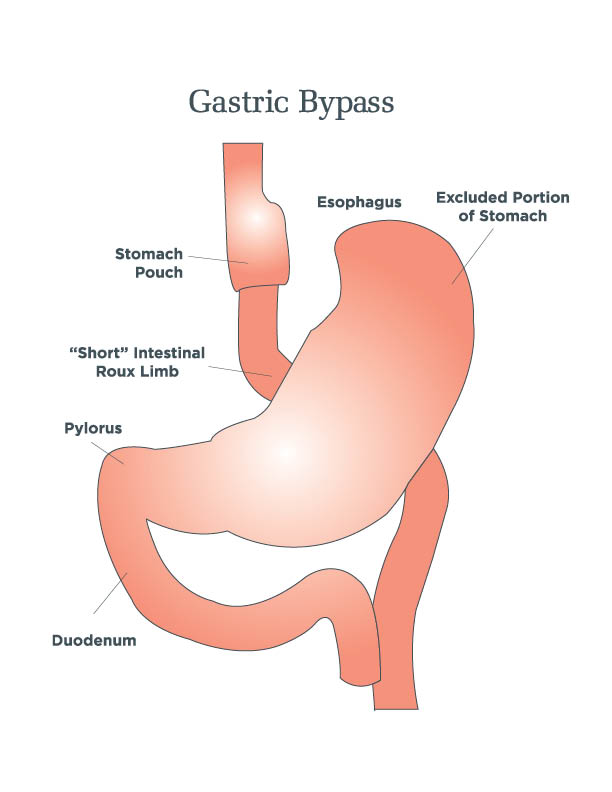
Many health experts agree that a low-fat diet can have many benefits. These include a lower risk of developing coronary heart disease and certain types of cancer. However, not all low-fat diets exclude non-lean dairy products and meats. There are some exceptions. Nuts, seeds and other foods are some of these exceptions. Small amounts of nuts and seeds may be tolerated in small amounts.
Lower risk of heart disease
Many people think red meat might increase your risk of developing coronary heart disease. Recent studies have shown that red meat intake is not the only cause. A study published in American Heart Association Journal suggests that low-fat diets could also be effective in preventing certain diseases. They based their conclusions on a prospective research that involved 84,136 women ranging in age from 30 to 55. These women had been healthy and free of any cardiovascular disease. A questionnaire was used to collect information about participants' diets.

Lower risk of certain types of cancer
Researchers who attempted to evaluate the impact of low-fat diets on cancer were disappointed. Although they acknowledge the importance of eating healthy and maintaining a healthy weight, they were unable to show that low-fat diets could reduce certain types of cancer. Most women didn't meet the 20 grams of fat required by the diet. This meant that cream cheese and butter were not allowed on bagels or breads, and that oil was limited in salad dressings.
Lower risk of developing cancer
Recent research suggests that women who eat low in fat may be at a lower risk of developing breast cancer. Nearly 50,000 women participated in the study. It found that women with additional risk factors had a 21 percent lower chance of getting breast cancer if they eat low-fat foods. These factors included diabetes, high cholesterol levels, and high bloodpressure. Researchers point out that this intervention study is the first to examine this type.
Increased TG levels
A British Journal of Nutrition study has shown that a very low-fat diet may increase TG levels. Although the magnitude of this response can vary between people, it can be as high as 70% higher than the initial concentration. This may be due to differences in metabolism in small intestine. To better understand the mechanism of this process, a more detailed study of this relationship is needed.
HDL levels lower
Recent research showed that subjects who ate low-fat diets had lower HDL-C levels and responded differently to apoA. The effect of low-fat diets upon HDL c was attributed to the subjects' dietary composition. This included protein, phospholipids and HDL -C. The authors are grateful to Debbie Plaisance for her editorial assistance.

Increased absorption
There are many nutrients that can be found in a variety foods. But not all. Although fat can enhance the absorption, vitamin D is not always available in all foods. There are many healthy options. Sunflower butter, for instance, is a healthy, unsaturated fat that increases the absorption fat-soluble vitamins.
FAQ
What length of Intermittent Fasting should I be doing to lose weight?
It's not as easy to answer as you might think. When determining the number of days you should fast for optimal fat reduction, there are many factors to consider. These include:
-
Your age. If you are younger than 40, intermittent fasting might be too difficult because you have less time for recovery after each fast. On the other hand, if you're older (over 60), you may find that you don't have enough energy to sustain an extended period of daily fasting.
-
Your current body composition. Longer periods of fasting are more beneficial if you have a lot muscle mass. However, if you have little muscle mass, then shorter periods of fasting may be better suited for you.
-
How physically active are you. Exercise regularly and you may need to extend the fasting window in order to get enough sleep between workouts.
-
Your past health history. Patients with certain medical conditions, such as heart disease, diabetes, or cancer, may need additional fasting monitoring.
-
How can you manage stress? Stressful situations often make us eat less. To avoid this, you might want to increase the lengths of your fasting window.
-
Your diet. Certain diets, like ketogenic diets, may require even longer fasting periods.
-
The quality of your sleep. Also, a lack of sleep has been linked with increased appetites and decreased metabolism. It could take some experimentation to discover the best method for you.
-
How much protein you eat. The ability to stabilize blood sugar levels. Eating more protein can lead to lower insulin levels. This will allow you to fast longer.
-
It doesn't matter if you want to gain or lose fat, those who are trying for weight gain will often require longer fasting periods.
-
What proportion of calories do your fasting hours allow you to consume? Fasting fewer calories per day may result in greater fat loss than fasting for more calories per day.
-
Your fitness level. The metabolic rate of fast people who are fit is higher, which means they burn more calories each day.
-
Your gender. Men tend to have greater appetites that women, so they may need a longer fast. Women are more likely to have smaller appetites and may need to fast only 20-30 minutes every day.
-
Your lifestyle. Do you get enough physical activity? Do you workout several times each week? Does your job involve sitting at a desk all day long? These factors could affect how much you should fast.
-
How much money do you spend on food? You don't have to spend much on groceries to eat healthy food. It's possible to save money by purchasing whole grains rather than white bread, fruit instead of candy bars, lean meats instead fatty cuts, and fruits instead of candy.
-
How important it is for you to control your hunger. If you don't want to skip meals, you might not need to fast as long as other people do.
How can busy people lose fat?
The best way to lose weight is by eating less and exercising more.
You will gain weight if your eat too much. Exercise is important to lose weight. Combining these two simple habits will help you lose weight.
How to Make an Exercise Plan?
The first step is to create a routine for yourself. You should know what you will do each week and how long. This helps you plan ahead, and it will also help you avoid procrastination.
It is important to make sure you are getting plenty of variety from your exercise routine. Exercise shouldn't be boring. Otherwise, you'll lose motivation.
Keep track of your progress. It's important that you keep track of the weight you have gained or lost over time.
If you lose weight and then gain more weight, it is easy to lose your motivation. On the other hand, if you gain too much weight, it becomes harder to stay motivated.
So, try to find a balance between gaining weight and losing weight. If you are unhappy with your current situation, you will be less inclined to exercise.
Is there any side effect to intermittent fasting?
Intermittent fasting is safe and has no side effects. You might have minor problems if your plan is not well thought out.
You might feel irritable if you skip breakfast. Also, you might experience dizziness, headaches, fatigue, muscle cramps, and dizziness.
These symptoms are usually gone within a few days.
How often do people fast every day?
People who are on a ketogenic diet only fast once a week. But, some people fast twice per week. And others fast three times per week.
There are many lengths to fasting. Some people fast for 24 or 48 hours, while others go for 48.
Some people go on for more than 72 hours. These extreme cases are rare.
Statistics
- One study in 9 active men found that HIIT burned 25–30% more calories per minute than other types of exercises, including weight training, cycling, and running on a treadmill (18Trusted Source (healthline.com)
- Among women, the increase in metabolic rate was nearly 4%, or 50 more calories per day (14Trusted Source (healthline.com)
- According to a study sponsored by the American Council on Exercise, a person weighing around 140 pounds (64 kg) would burn 108 calories at a 30-minute beginner's Pilates class or 168 calories at an advanced class of the same duration (26). (healthline.com)
- A 12-week study in 20 women with obesity found that walking for 50–70 minutes 3 times per week reduced body fat and waist circumference by an average of 1.5% and 1.1 inches (2.8 cm), respectively (healthline.com)
External Links
How To
9 easy ways to lose weight naturally
The number one problem that people face is losing weight. You can't live a healthy lifestyle if you constantly try to lose weight. There are many ways to lose weight like dieting, exercising, etc., but these methods do not work permanently.
Today I will share natural ways to lose your weight with no side effects. Let's start!
-
Drink Lemon Water. Lemon water can help to eliminate toxins from the body. This drink detoxifies your system and makes you feel energized throughout the day. Consuming this drink each day can help you lose weight.
-
Consume more vegetables. Vegetables are full of fiber, vitamins, nutrients, antioxidants and other nutrients that are crucial for our health. They can also give you a feeling satiated. Eating vegetables can help you lose weight.
-
Increase Protein Intake. Protein is an important nutrient and plays a vital role in building muscle. High-protein diets can help you lose weight and build muscle.
-
Consume Green Tea. Green tea contains caffeine. This reduces appetite, and increases metabolism. Caffeine has been proven to increase thermogenesis (the process that heat is generated). Thermogenesis explains why coffee drinkers are more likely to consume lower amounts of fat than non-coffee users.
-
Use cold showers. Taking cold showers can help you burn more calories. According to research, taking cold showers burns up to 50% more calories than taking warm showers.
-
Avoid Alcohol. Avoid alcohol. Alcohol can cause weight gain and is often a stimulant. It is easy to gain weight if alcohol is consumed frequently.
-
Cardio Exercise Daily. Cardiovascular exercise has been proven to reduce weight. It improves blood circulation, energy levels, and keeps people fit. Walking, swimming and cycling are all options.
-
Don't Skip Meals. Eating small meals throughout the day rather than three large meals can help you control your hunger pangs. Avoiding meals can lead to fatigue and a lack of concentration.
-
Reduce Sugar Consumption. Sugar is addictive and can negatively impact your mood. Sugar gives you a temporary boost of energy, but after eating sugar, you become tired and sluggish.